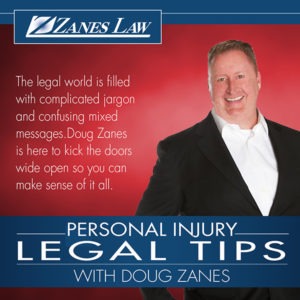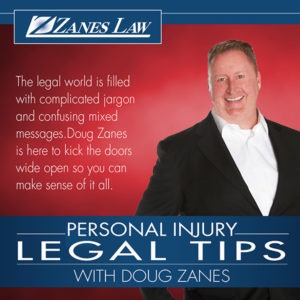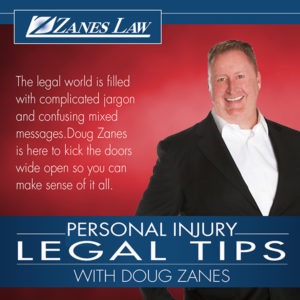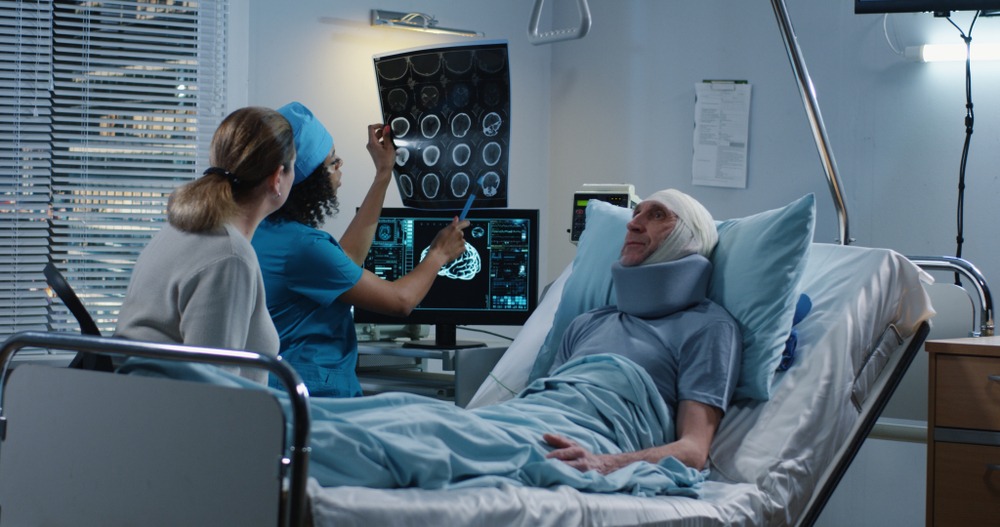![]() Contact Us (866) 499-8989
Contact Us (866) 499-8989
What Is the Difference Between a TBI and a Concussion?
- Defining the Differences Between Concussions and TBIs
- Recoverable Damages in TBI and Concussion Injury Cases
- Do the Differences Between TBIs vs. Concussions Affect Damages?
- How Our Law Firm Can Help Your Concussion or TBI Claim
- Call for a Free Consultation About Your TBI or Concussion Injury
- Home
- FAQs
- Personal Injury
- What Is the Difference Between a TBI and a Concussion?
The difference between a TBI and a concussion is that a concussion is a mild TBI with temporary brain problems, while a TBI can be mild to severe and cause long-term or permanent damage.
Understanding the difference between the two helps injured patients get the right treatment and care for each type of injury. It also can guide their expectations when seeking damages from a liable party.
Our Phoenix catastrophic injury lawyers know the differences between a TBI and a concussion and how they can affect a plaintiff’s long-term health and injury case. If you or a loved one suffered these injuries, we can fight for the maximum financial award that helps you recover and rebuild your life.
Defining the Differences Between Concussions and TBIs
While the terms concussion and TBI are often used interchangeably, they each refer to different levels of brain injury severity.
What Is a Concussion?
A concussion is a mild traumatic brain injury caused by a force affecting the head or body that brings on a change in brain function. It is usually not life-threatening but can cause serious symptoms.
Per the Mayo Clinic, a concussion can have the following effects:
- Headaches
- Ear ringing
- Nausea, vomiting
- Tiredness, drowsiness
- Blurred vision
- Dizziness
- Concentration difficulties
- Memory problems
- Coordination issues (balance)
- Disturbances in mood and sleep
Loss of consciousness is possible but not common. Symptoms can last for several days, weeks, or longer and can take time to appear after the injury occurs. People with concussions may experience “brain fog” or not remember what happened. They also may “see stars.”
Athletes and people who suffer falls commonly suffer concussions. According to the Mayo Clinic, people typically recover from concussion injuries.
What Is a TBI?
TBI stands for “traumatic brain injury,” and the injury can range from mild to severe. TBIs occur when an external force to the head, such as a blow, bump, or jolt, occurs and results in brain dysfunction. People who suffer a TBI after a slip and fall accident, other kinds of falls, vehicle accidents, sports injuries, or violent physical assaults can get a TBI.
According to the National Institute on Neurological Disorders and Stroke (NINDS), TBIs fall into two categories: penetrating TBI (known as open TBI) and non-penetrating TBI (or close head injury or blunt TBI).
- Penetrating TBI happens when something like a bullet or a piece of metal enters the skull and into the brain. This injury causes specific damage to a part of the brain and can lead to infections. The serious condition needs immediate medical care to prevent more problems.
- Non-penetrating TBI occurs when the head is hit hard, but the skull isn’t broken. This can happen in car accidents or falls. The brain can be hurt by shaking inside the skull, causing widespread damage. Symptoms can vary and might not show up right away.
Knowing these differences helps doctors choose the best treatment for each injury.
Symptoms of TBIs
Mild TBIs share symptoms similar to concussions but may include a brief loss of consciousness.
Some signs of moderate-to-severe TBIs include:
- Confusion
- Extended loss of consciousness
- Memory loss
- Communication issues
- Motor impairment
- Severe cognitive and emotional disturbances
For a free legal consultation, call (866) 499-8989
Recoverable Damages in TBI and Concussion Injury Cases
A person can sue for and receive personal injury damages for a concussion and a traumatic brain injury (TBI). The amount and types of damages awarded depend on the severity of the injury, how it affects a person’s life, and other factors.
The damages for concussion vs. TBI share similarities, but the extent of these damages differs significantly. It is important to keep this in mind when determining how much compensation to demand from a party responsible for the injury.
Concussion:
- Medical expenses: Compensation for medical bills, including doctor’s visits, medication, and necessary therapy.
- Lost income: Compensation for time missed from work during recovery.
- Pain and suffering: Damages for the physical pain and emotional distress caused by the concussion.
- Future medical costs: If ongoing treatment or follow-up care is needed.
Traumatic Brain Injury (TBI):
- Medical expenses: Coverage for extensive medical treatments, surgeries, hospital stays, rehabilitation, and long-term care.
- Lost earnings: Compensation for immediate loss of income and any future loss of earning capacity if the TBI affects the person’s ability to work.
- Pain and suffering: Significant compensation for the physical pain and emotional distress caused by a severe TBI, which can be long-lasting or permanent.
- Loss of quality of life: Damages for changes in lifestyle and inability to engage in activities previously enjoyed.
- Future medical costs: Coverage for anticipated future medical expenses and ongoing care needs.
- Support and care: Compensation for special care or modifications needed at home due to the injury.
Do the Differences Between TBIs vs. Concussions Affect Damages?
If you or a loved one suffered either of these head injuries, you can sue for compensation that covers medical bills and related expenses. However, the difference in severity between a TBI and a concussion can affect the damages and monetary recovery you could receive.
In personal injury lawsuits, concussions and TBIs are taken seriously, and victims can seek compensation to cover their losses and aid in their recovery. Still, the following factors can affect your case’s outcome.
The following factors can affect damages:
- Severity of injury: More severe TBIs generally result in higher compensation.
- Effects on daily life: How the injury affects the person’s ability to work, engage in activities, and enjoy life.
- Duration of recovery: Longer recovery periods or permanent impairments can increase the damages awarded.
- Evidence and documentation: Medical records, expert testimony, and detailed documentation of the injury’s impact on life can strengthen a claim.
A Phoenix personal injury lawyer from our firm can explain these differences and determine the appropriate compensation for your medical expenses, lost earnings, pain and suffering, and injury-related lifestyle changes.
Click to contact our personal injury lawyers today
How Our Law Firm Can Help Your Concussion or TBI Claim
A lawyer can help your concussion or TBI injury case by guiding you through the legal process. They can gather important evidence like medical records, witness statements, and expert opinions to build a strong case.
An attorney knows what it takes to prove that someone else is responsible for your injury. They can negotiate with insurance companies to get you the best settlement. If needed, they can take your case to court to fight for your rights.
Working With Our Catastrophic Injury Lawyer Can Protect Your Claim
We can also guard you against insurance companies or other opposing parties that may try to minimize your compensation claim. An insurer might try to avoid paying you by claiming your symptoms are not serious or are unrelated to the accident.
For example, they could argue that your headaches and dizziness are due to pre-existing conditions or daily stress, not the concussion or TBI. They may also downplay the long-term impact of your injury, suggesting you can return to work sooner than your doctor advises.
We will protect you from this and take on the insurance company, ensuring it knows you are serious about recovering your rightful compensation.
Complete a Free Case Evaluation form now
Call for a Free Consultation About Your TBI or Concussion Injury
If you or a loved one has suffered a head injury due to someone else’s negligence, don’t wait to get the help you deserve. The experienced lawyers at Zanes Law will explain the difference between a TBI and a concussion and how it could affect your potential compensation.
We will fight for your rights. Call us or contact us online today for a free consultation. Let us help you get the compensation you need to recover and move forward.
Call or text (866) 499-8989 or complete a
Free Case Evaluation form
 Injury Lawyer Doug Zanes Interviewed For “Business Leader Spotlight”
Injury Lawyer Doug Zanes Interviewed For “Business Leader Spotlight”
Doug was recently interviewed by Randy Van Ittersum on the "Business Leader Spotlight Show." It was a great experience and gave him the opportunity to share important topics that are super
 Need Personal Injury Legal Advice? Listen to Our NEW Podcast by Doug Zanes!
Need Personal Injury Legal Advice? Listen to Our NEW Podcast by Doug Zanes!
We are excited to announce that we have officially launched the Zanes Law Personal Injury Legal Tips podcast, featuring advice from Zanes Law owner and responsible attorney Doug Zanes. When
 Should you hire an injury attorney? 5 Things You Need to Know
Should you hire an injury attorney? 5 Things You Need to Know
We know that when you’ve been injured in an accident, it can be difficult to take legal action quickly. After an accident, you might just want everything to be over and done with, so you
 Can I Settle An Injury Claim On My Own?
Can I Settle An Injury Claim On My Own?
Nobody expects to be in an accident—let alone get injured in an accident—but when it does happen, you may be asking yourself a lot of questions, including, “Can I settle an injury claim on my
Receive a Free, No-Obligation, Case Evaluation Now



